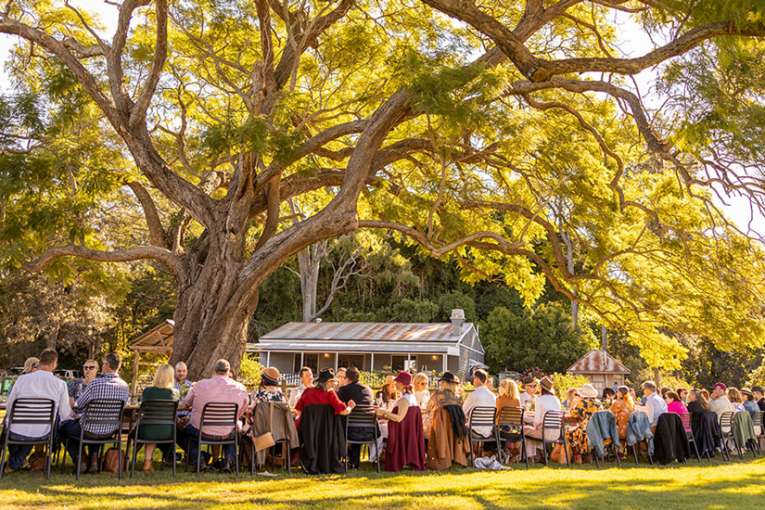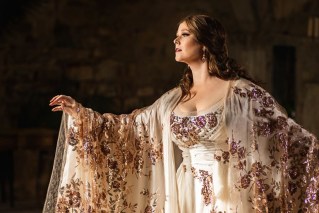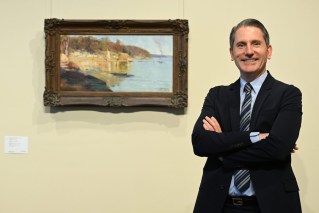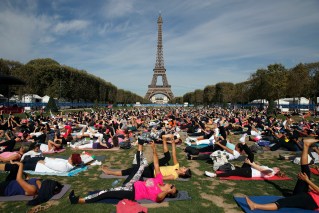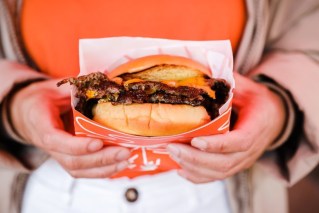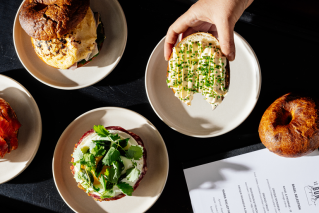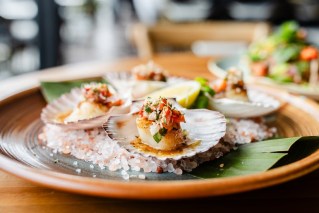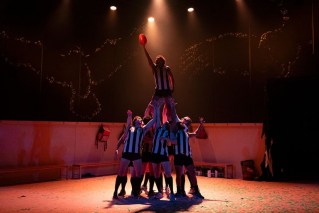Science festival tackles fake news and climate change in 120 events
The World Science Festival Brisbane launched yesterday with the largest programme since its inception, aiming to restore public trust in science and innovation.
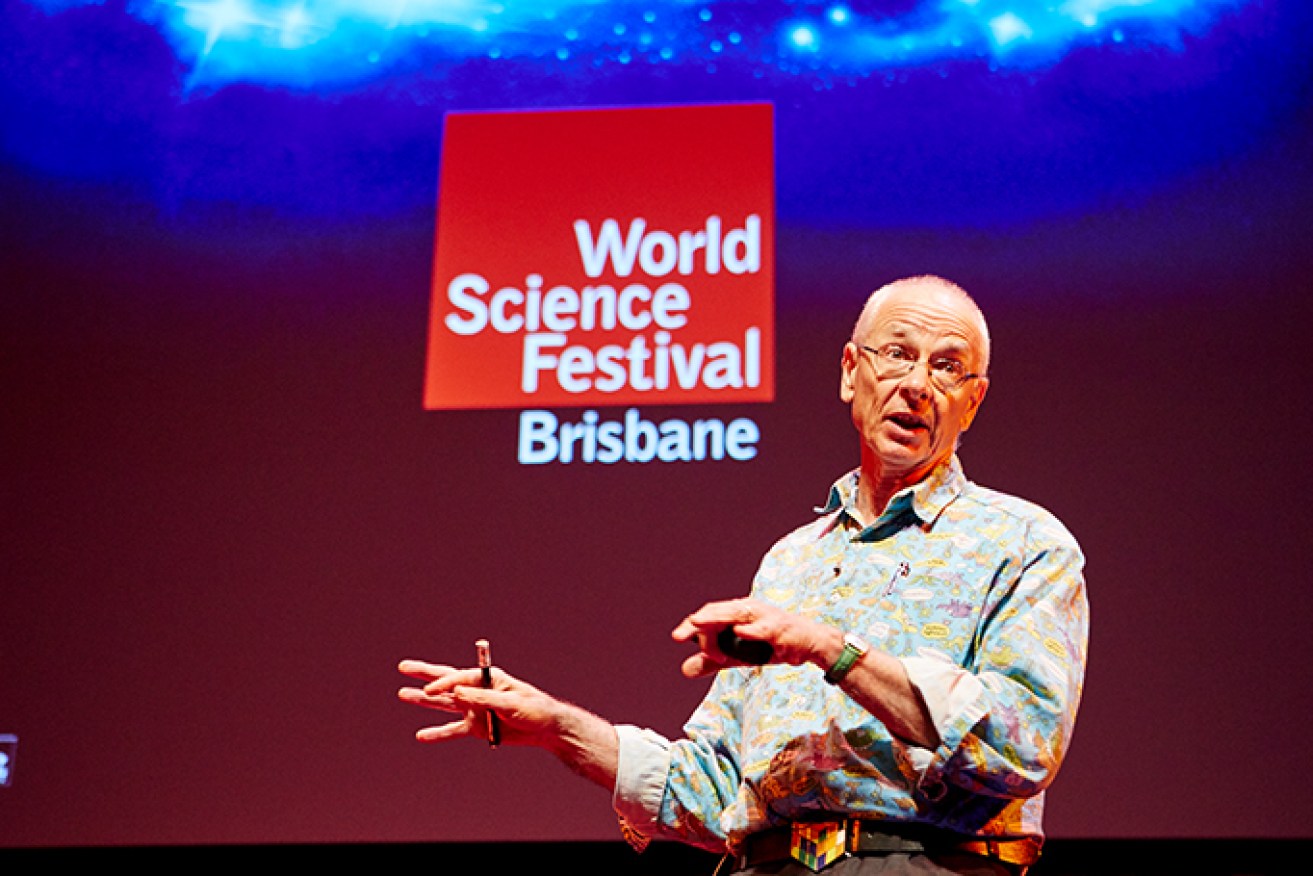
Dr Karl Kruszelnicki at World Science Festival Brisbane. (Image: Queensland Museum)
Hosted by the Queensland Museum, the five day festival runs from 24 to 28 March in multiple locations across Brisbane city, hinged on the theme ‘Extremes and Adaptations’.
The festival is now in its sixth iteration and is taking on some of the world’s most critical issues, including climate change, sustainability, and post-truth distrust in science.
Chief Executive of Queensland Museum Network, Dr Jim Thompson, said the festival had built a reputation for developing and delivering world-class events since 2016.
“Science has the potential to unlock many of today’s global challenges, from combating pandemics to natural disasters; tackling climate change and navigating the future of the universe,” Thompson said.
The events include the panel talk ‘Why Trust a Scientist?’ hosted by Australian institution Dr Karl Kruszelnicki.
The panel will see scientists, historians and communicators delve into the history of how conspiracies and misinformation undermine scientific discovery and how to restore public trust in science in the future.

Why Trust A Scientist event image. (Image: World Science Festival Brisbane)
The festival also focuses on sustainability and climate change, with a range of events and talks dedicated to adapting to the conditions of a planet subject to global heating.
Panel talk ‘Running the planet without costing the Earth’ will present a collection of energy experts who delve into the logistics of how to provide a sustainable future in a post-fossil-fuel-world.
The festival also will present innovative art exhibitions and talks which visualise the future as the climate crisis takes hold.
‘Sustainability in Art and Design’ will survey eco-friendly practices in designing creative spaces and events whereas ‘Creative Climate Changers’ is an art exhibition of three diverse female artists, blending conceptual art, installation art and contemporary opera to reflect on the true impact of the climate crisis on society.
There will also be discussions available as part of the digital programme including ‘Rising Tides, Searing Heat: Indigenous Australians and the Climate Crisis’ and ‘Disrupting Bushfires’.
As well as investigating the issue itself, the festival is adopting sustainability practices in its daily operation.
Thompson said the festival has big goals – and everyone is taking steps to make sure we deliver an engaging event that is safe, healthy and fun, without compromising the needs of future generations.
“Some of the changes we are making include reducing single use plastics, using solar power at City of Science, installing recycling and organic waste bins and providing free water refill stations; even the slime is called edible science… so environmentally friendly,” he said.

Tanja Beer, an ecological designer hosting the event Sustainability in Art and Design. (Photo by Pat Scala/Fairfax Media)
Lord Mayor Adrian Schrinner said he believes the coronavirus pandemic has renewed an interest in understanding the unknown and learning more about the changing nature of the world.
“Brisbane is the only host of the World Science Festival in the Asia-Pacific region and I encourage everyone to put their thinking hats on and take part in the five-day celebration of everything weird, wacky and wonderful in the world of science,” he said.
Minister for the Arts Leeanne Enoch said the Palaszczuk Government was investing $3 million to bring World Science Festival to Queensland, aiming to get Queenslanders excited about science and innovation.
She said the festival was also going to be touring regional towns across Queensland for the remainder of the year.
“The Festival is also going to make its way around the rest of the state throughout the year, with science experiences planned for Chinchilla, Gladstone, Toowoomba, Townsville and Ipswich.”
“Festivals like this are vital for our state as we recover from the pandemic. The arts are key to delivering the Queensland Government’s plan for economic recovery, each year injecting $8.5 billion into the state’s economy and supporting more than 92,000 jobs for Queenslanders,” she said.
World Science Festival Brisbane runs from March 24-29. For a full program of events and ticket information, visit worldsciencefestival.com.au/
